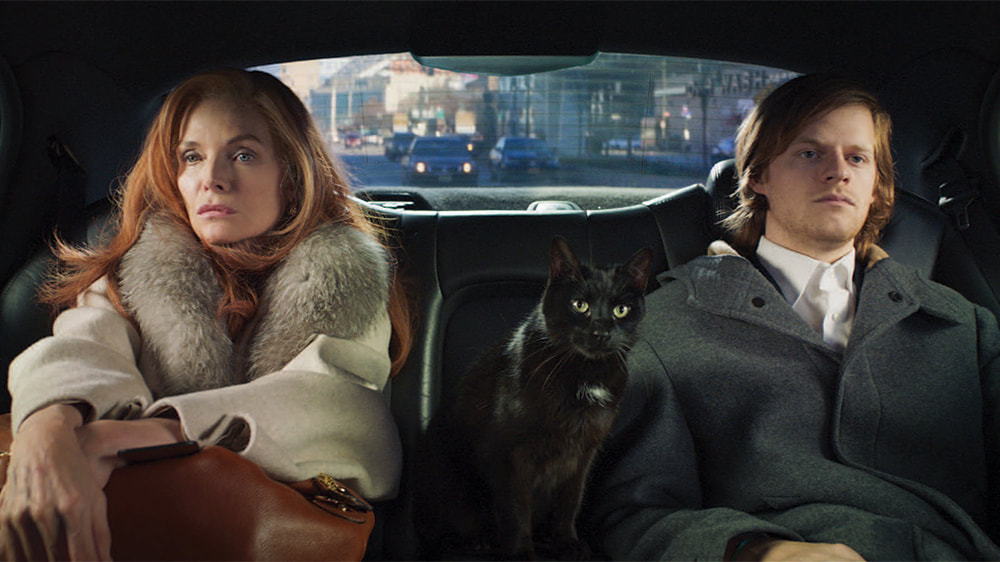|
by Philip Price Director: Azazel Jacobs Starring: Michelle Pfeiffer, Lucas Hedges & Valerie Mahaffey Rated: R Runtime: 1 hour & 50 minutes Knowing nothing of the Patrick DeWitt novel on which this film is based, there was a certain expectation for “French Exit” based solely on its qualifiers of being distributed by Sony Classics, the fact it starred Michelle Pfeiffer and featured Lucas Hedges in a supporting role, as well as being released just in time for awards consideration. With a title like “French Exit” I expected this to be something of a peculiar little domestic drama with a European edge to it. An art film of the upmost degree and maybe, potentially even a little irritating due to its stuffy nature. And the film does begin as much given Pfeiffer is playing this aging Manhattan socialite who we see early in the film rip her son, Malcolm (Hedges), out of boarding school and who continues to live on what's left of her inheritance from her dead husband until she can't anymore at which point, she and Malcolm move to a small apartment in Paris that belongs to her sister, Joan (Susan Coyne). The film is slightly odd in the semantics it goes through in getting Pfeiffer's Frances along with Malcolm and their cat (don't forget the cat!) to Paris, but it's initially taken as little more than the obligatory quirkiness a production of this nature must adhere to. It is when the mother and son duo finally arrive in The City of Lights that things actually begin to truly become...what was that word again...peculiar. Beginning with Malcolm abruptly breaking off a seemingly serious relationship with girlfriend Susan (Imogen Poots) as soon as his mother tells him they're leaving New York and the country altogether to the trip across the Atlantic where they encounter Madeleine the Medium (Danielle MacDonald) who both becomes a more critical character in the lives of our protagonists than expected and immediately understands something the audience hasn't yet become privy to, there is a change of tone and a turning of curiosity.
The heart of the film is the relationship between Frances and Malcolm and how it mines this world of appearance over substance for exactly that; examining if what can be found between this mother and son is actually a connection with meaning or simply the only other outlet Frances could turn to in order to exonerate her societal critiques after the death of her husband. DeWitt, who adapted his own work for the screen, has a certain flair for the absurdity and given absurdities aren't difficult to come by when satirizing the upper class much of this feels like low-hanging fruit, but what separates “French Exit” from its ilk is the surrealism it embraces in its latter half. The forthright nature of the dialogue, the pure insanity of certain plot points, and director Azazel Jacobs' ability to somehow wrangle all these tones through this pedigreed lens that has no issue winking at the camera without literally winking somehow makes it work. The film itself a contrivance of that which it seeks to expose. Insane yet endearing, this dark comedy that initially appears somewhat airless and old-fashioned builds to a biting, hyper-aware experience that Pfeiffer absolutely crushes in regard to target and tone. Valerie Mahaffey as the aloof Madame Reynard is the true diamond here though, as her character is one who simplifies all the film is trying to convey: an individual so accustomed to privilege there is no need for deception and is therefore always her most authentic.
0 Comments
Leave a Reply. |
Archives
April 2024
|
